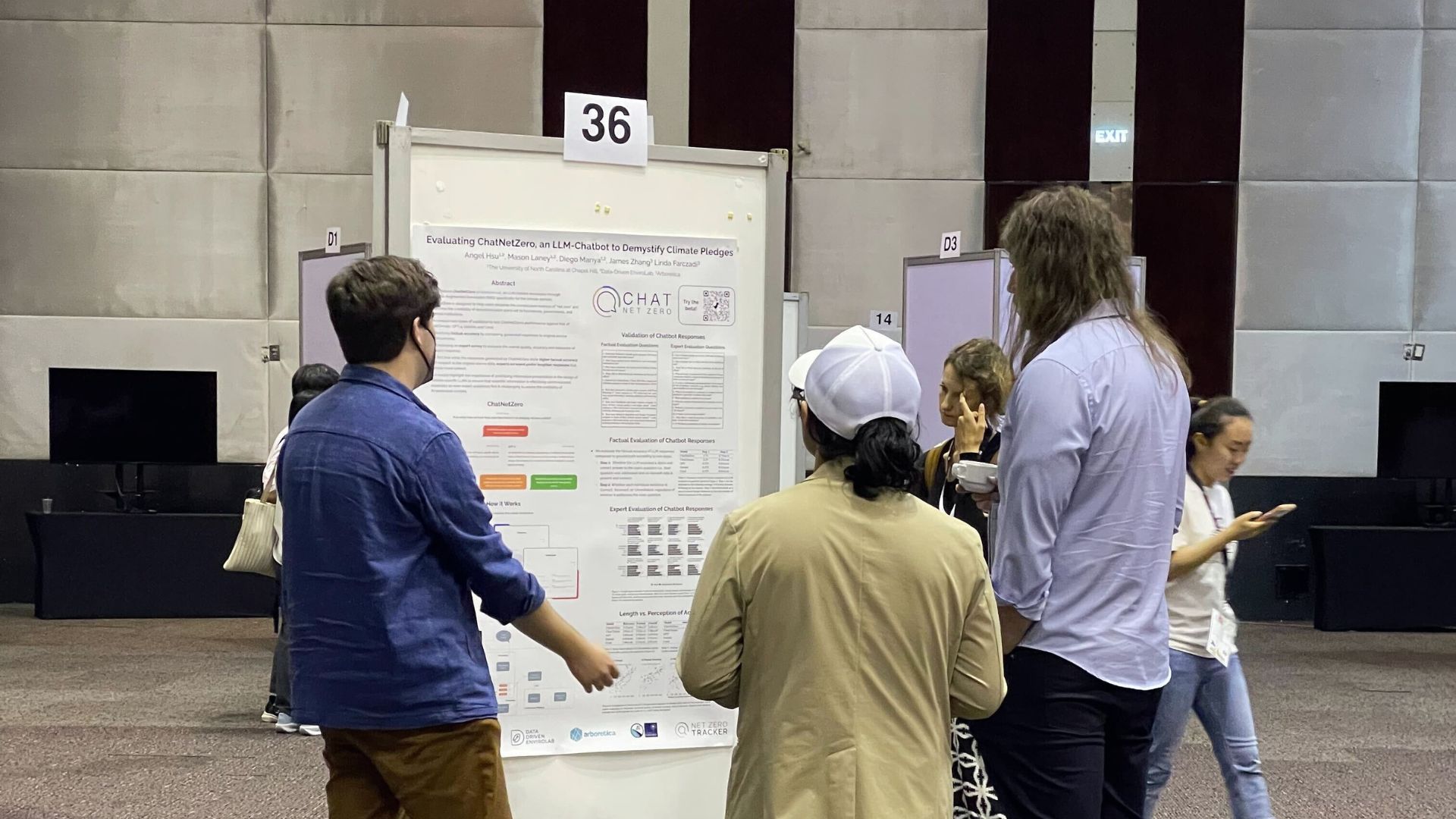
With the rapid rise of ChatGPT and generative AI, which utilize large language models (LLMS) to process and generate human-like text, new possibilities have emerged for addressing complex global challenges like the climate crisis. The most recent
2024 annual meeting of the Association for Computational Linguistics, widely considered the premiere academic conference in the field, brought together
a coalition of researchers and practitioners to address these opportunities. Nearly a year in advance, conference attendees were invited to propose workshop topics ranging from specific techniques to broader topic domains of interest, like climate change. Responding to this call and new opportunities on climate, experts working at the intersection of climate change and natural language processing (NLP) methods organized the first ClimateNLP workshop on August 16 in Bangkok, Thailand.
DDL Director Angel Hsu was invited to keynote the workshop, which included 20 papers from researchers around the globe covering topics from debunking climate misinformation to using NLP to facilitate cross-cultural communication on climate. Over the course of a day, the workshop featured four keynote presentations, including Prof. Hsu’s. It also showcased selected papers and posters during sessions that allowed for presenters to engage with a range of academic researchers and industry practitioners, including representatives from IBM and Microsoft Research.
“One of my biggest takeaways from the conference was that people are working hard to increase the quality and reliability of existing NLP techniques, including the ones currently used in projects like ChatNetZero,” said Mason Laney, a graduate student RA at DDL who assisted with ChatNetZero and presented a poster at the ClimateNLP workshop. “Whether it be improving RAG, combatting hallucination, or creating factually-grounded question answering, I encountered a number of works aimed at bettering the NLP landscape, and I believe we can take inspiration from these works as we continue to develop ChatNetZero.”
Included amongst the 20 papers selected was a paper led by Hsu and DDL, “Evaluating ChatNetZero, an LLM-Chatbot to Demystify Climate Pledges,” which explores the challenges of validating climate-domain specific LLMs like ChatNetZero. This Q&A chatbot, developed by DDL and industry partner Arboretica, was launched in Sept. 2023 at NY Climate Week and pioneers retrieval augmented generation (RAG) processes that allow for LLMs to generate responses based on a specifically-curated corpus of documents. Arboretica and the DDL team used RAG to limit ChatNetZero’s responses to a set of verified climate documents. When combined with an “anti-hallucination” algorithm and reference module, ChatNetZero allows for the generation of responses that more accurately reflect source documents than other general LLMs like ChatGPT.
With generative AI being such a new and rapidly-evolving field, working with and learning from other researchers at venues like the ACL conference is key to developing the best possible models to communicate about climate science and policy.
“There’s still no real consensus on how to treat all of this,” said Laney,. “It’s still very much a new field.”
Laney said that the poster session and presentations from other presenters at the workshop ignited new ideas on how to proceed with improving the fact-checking capacity and anti-hallucination modules of ChatNetZero. To this aim, Laney said he specifically took note of how other NLP researchers iterated their models to better identify misinformation, fact-check and generate truthful and well-cited information.
DDL and Arboretica are now working to fine-tune ChatNetZero’s responses to better handle more nuanced climate policy questions, including the credibility of specific entities’ net-zero pledges and a new anti-greenwashing algorithm. Arboretica’s CEO James Zhang will attend the annual NY Climate Week meetings and present the updated beta version there.

Recent Comments